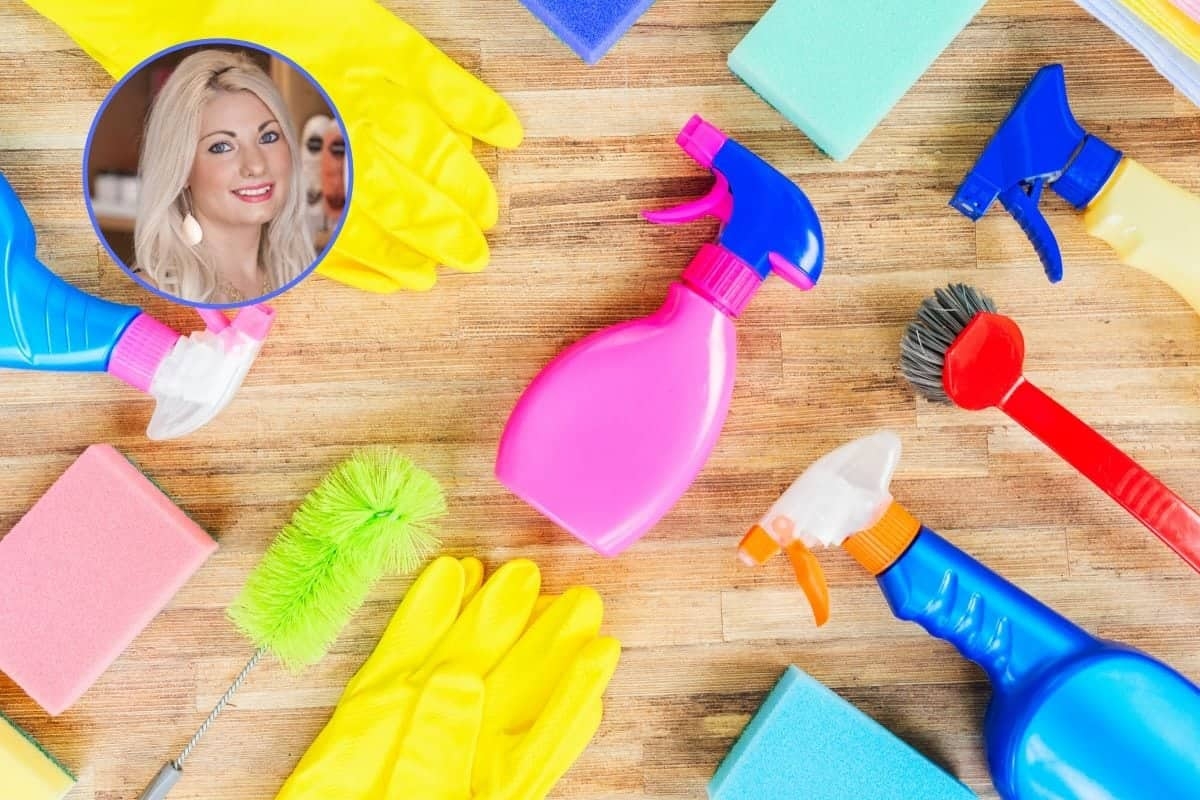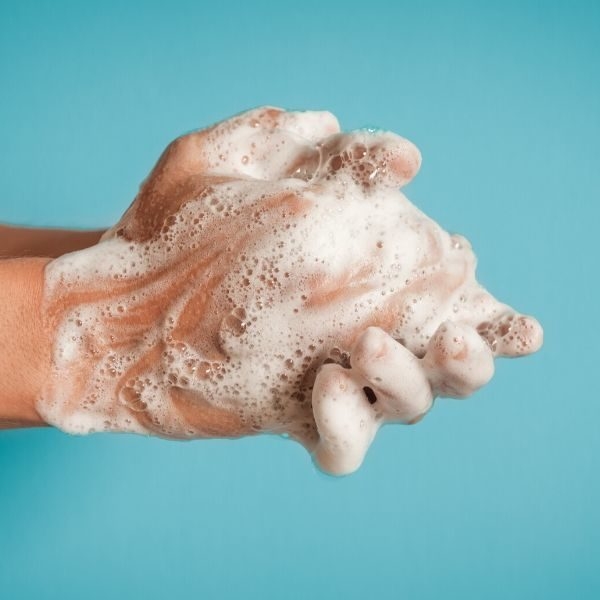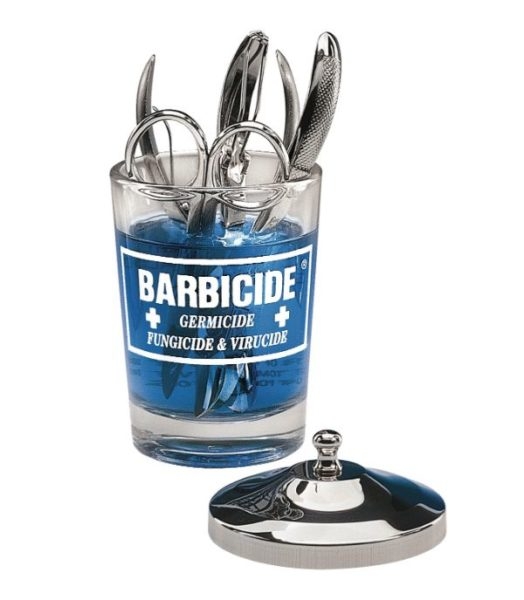
Coronavirus fears: A review of salon hygiene practices
By Katie Barnes | 03 March 2020 | Expert Advice, Feature

With Coronavirus spreading at a rapid rate across the globe, Katie Barnes reflects on sanitation, disinfection and sterilisation procedures in the beauty sphere to help prevent the spread of any infection…
In the nail salon, we are in constant contact with a a number of people every day. Sometimes, we can become lapse with hygiene procedures, especially with those clients we know well or when we are running behind time.
In light of outbreak of Coronavirus (Covid-19), reflect on your hygiene practices to ensure that both you and your clients are as protected as possible. Many techs confuse and use ineffective methods of sanitation, disinfection and sterilisation and this can be a dangerous mistake.
Each country, state and government will have their own guidelines which are paramount to follow. You must follow the legislation by Habia in the UK for cleaning, disinfection and sterilisation.
According to the government website, at the moment the UK risks for Coronavirus are currently low but following good hygiene procedures are always essential in a salon.
Sanitation
Cleaning is the physical process which reduces the amount of organic matter that contributes to the spread of bacteria and viruses. Cleaning is essential before disinfection or sterilisation of instruments and equipment as inorganic and organic materials may remain on the surfaces of tools and interfere with the effectiveness of disinfection and sterilisation.
Methods of sanitation include hand washing; cleaning surfaces; all varieties of wipes; anti-bacterial sprays and hand gels.
 The client and technician must wash their hands with a liquid soap and water before commencing every single service. Additional infection control measures can be used including an automated soap dispenser.
The client and technician must wash their hands with a liquid soap and water before commencing every single service. Additional infection control measures can be used including an automated soap dispenser.
Hand washing with soap and hot water is by far the most effective method of sanitation and that is what should be used first and foremost. However when this is not possible, hand sanitiser gel can be used, although it is not a replacement for handwashing but to be used in between hand washing.
Hands and arms (if exposed) should be washed for around 20 seconds – the amount of time it takes to sing ‘Happy Birthday‘ twice. Follow the NHS recommendations for thorough handwashing protocol. It can be good practice to have this on display in your business bathrooms.
Government legislation state that wipes are only sufficient sanitation if they contain higher than 60 percent ethyl alcohol. These do not however disinfect or sterilise. Used towels should be washed at a minimum of 60-degrees C.
 Disinfection
Disinfection
Disinfection is a sufficient level of microorganism control when skin is not cut or broken. Disinfection is the process or act of destroying pathogenic microorganisms and removes most viruses, spores and fungi present on surfaces. Disinfectants work by destroying the cell wall of microorganisms or interfering with the absorption. Disinfection does not necessarily kill all microorganisms, especially resistant bacterial spores; it is less effective than sterilisation. Disinfectants must always be used in line with manufacturers’ instructions.
Methods of disinfection include hospital grade and approved disinfection solutions such as Barbicide or Mundo.
For the purpose of nail treatments, all disinfectable surfaces such as metal tools and implements and work surfaces must be disinfected after thorough cleaning between services.
Sterilisation
Sterilisation is a process that eliminates or kills all forms of life, including transmissible agents such as viruses, bacteria, fungi and spore forms. Sterilisation should be performed on metal implements, e.g. scissors, cuticle pushers and cuticle nippers.
Sterilisation can be achieved by applying chemicals, high pressure, heat, irradiation, and filtration or a combination, which include hospital approved Autoclaves, UV sterilisers and sterilising solutions. These must be bought from reputable manufacturers and not third party retailers as there is no way of being sure of its effectiveness.
Using single-use, disposable equipment and sterilising equipment or both will significantly reduce the risk of cross contamination.
Now may be a good time to invest in further single use items such as nail files if you are not already doing so. Annual inflation price increases occur in April, so this can be the ideal time to introduce these and factor these into your costs. Your clients will be thankful of the additional measures you are taking to protect their health.
As well as our nail desk and tools, high touch surfaces such as toilets, computer keyboards, chairs, door handles, doorbells and telephones must be cleaned and then disinfected on a regular basis.
It is recommended that you identify and record what requires cleaning, disinfection and sterilisation and how it is achieved.
Ensure that all team members competent in cleaning, disinfection and sterilisation by providing instruction, information and training as appropriate.
There are some concerns around how Coronavirus can spread and because it’s a new illness, it is not known exactly how it spreads from person to person. However similar viruses are spread in cough droplets. It’s very unlikely it can be spread through things like packages as viruses like coronavirus cannot live outside the body for very long.
While any masks and gloves will offer a small of protection and are better than nothing, it is important to invest in PPE that have clinically been proven to protect against other similar viruses for your best protection.
Be aware of companies trying to profit from the fear of Coronavirus. If they are offering something which they claim will help prevent transmitting viruses like Coronavirus, it must clinically proven. Due to the short period since the Coronavirus (Covid-19) emergence and the transmission method not yet been confirmed, this would not allow time for these clinical trials to be carried out.
Although the Coronavirus originated in China, let’s not use this as an excuse to discriminate against races in the industry.
It can be good protocol to introduce a statement on your booking confirmation or to mailshot to customers that if any have any symptoms that they must reschedule to after the 14 day quarantine period recommended by the NHS. If you wish to extend this to include whether they have travelled to certain countries recently, this is at your discretion. Follow NHS guidelines.
There is no such thing as being over cautious when it comes to ensuring the protection of yourself and your clients. You can’t put a price on safety.
Love Katie B x

Read the latest issue









